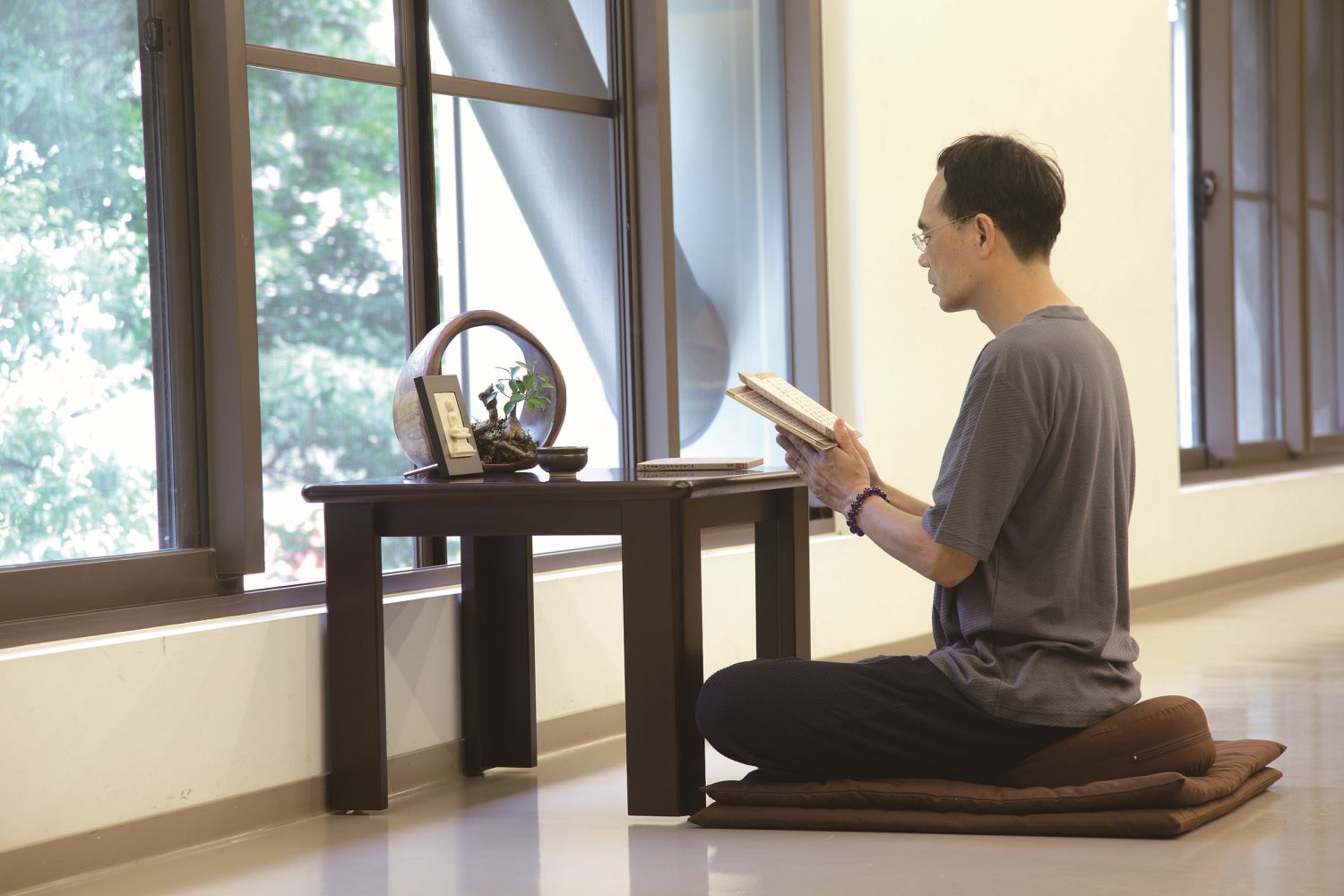Special Topics
Morning and Evening Recitation Helps Mental and Physical Adjustment
 Morning and evening recitation helps monastic practitioners regulate and tame their minds, in the sense that it serves as a regular reminder to avoid laziness, practice diligently to accumulate spiritual provisions, and learn to let go of the ego.
Morning and evening recitation helps monastic practitioners regulate and tame their minds, in the sense that it serves as a regular reminder to avoid laziness, practice diligently to accumulate spiritual provisions, and learn to let go of the ego.For example, when hearing the signals for morning and evening chanting, monastics are supposed to immediately stop their work at hand and head to the Buddha hall for the chanting session. From the very moment we enter the Buddha hall to the conclusion of the chanting, we can see how thoughts arise in us as well as whether we are being fully present. Also, we learn to let go of our ego by following the timetable of the whole assembly, thus achieving the monastic requirement of "living in harmony with the group" and realizing how group practice can enhance personal practice.
In addition, the Buddhist hymns of the morning and evening chanting are good for one's health. As Ven. Guo Kai (果慨法師), teacher of monastic chanting at Dharma Drum Mountain, points out, the basic principle for Buddhist chanting is to do it in a relaxed manner. By staying relaxed and breathing in a natural rhythm, our voice will loosen up and our movement will be coordinated. Also, chanting in a relaxed manner allows us to be more observant of our bodily and mental state, thereby making necessary adjustments accordingly. Fully engaging our body and mind in the chanting enables us to experience a spiritual cleansing of our body and mind.
To encourage monastics to maintain their regular practice of morning and evening chanting, Ven. Hui Min, President of Dharma Drum Institute of Liberal Arts, used an analogy: just as everyone likes going to a feast, so attending morning and evening chanting resembles sampling the Dharma food given by the Buddha and ancestral masters throughout history--a most delightful and enjoyable experience. In addition, through merit-transfer, we generate the mind to give blessings to all beings, thereby experiencing the joy in the Dharma of acting for the benefit of self and others.
In fact, lay people are welcome to join the morning and evening chanting. When visiting a Buddhist temple, you can take the opportunity to participate in a chanting session and immerse yourself in the power of group practice.
Extended Reading:
Morning and Evening Chanting as a Regular Monastic Practice
Innovations in Morning and Evening Services in Modern Day Monasteries
Morning and Evening Recitation Helps Mental and Physical Adjustment
The Regular Daily Practice of Venerable Master Sheng Yen
Daily Practice Q & A: Q1: Is it necessary to have a daily practice after studying Buddhism ?
Daily Practice Q & A: Q2: How does one choose a daily regular practice?
Daily Practice Q & A: Q4: What is the difference between preliminary and daily practice?
Resource: Issue 326 of Life Magazine, Dharma Drum Publishing Corporation
Photos: Issue 326 of Life Magazine, Dharma Drum Publishing Corporation
Translation: Pin-an Chen (陳品安)
Editing: Chia-chen Chang (張家誠), Keith Brown
